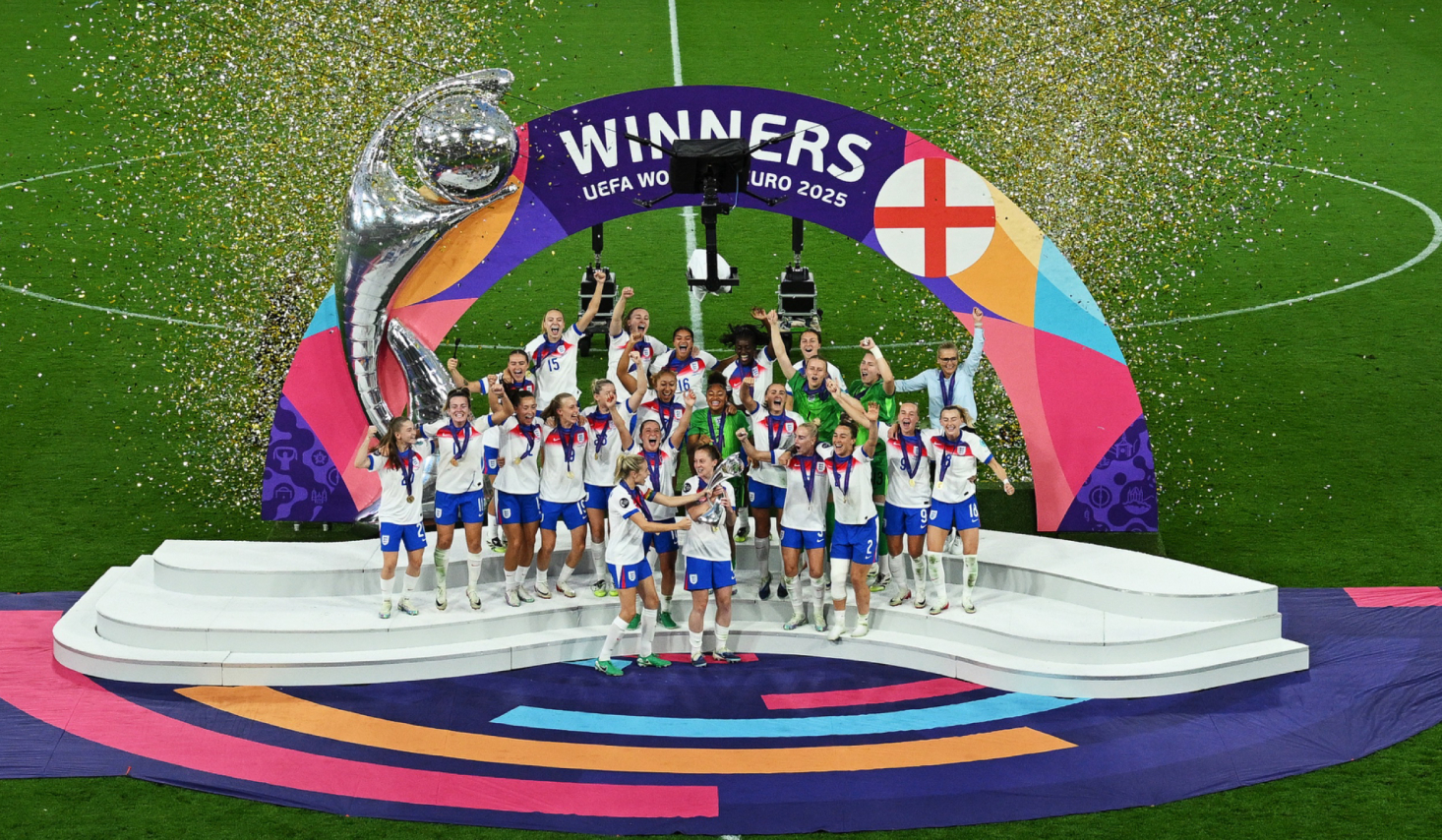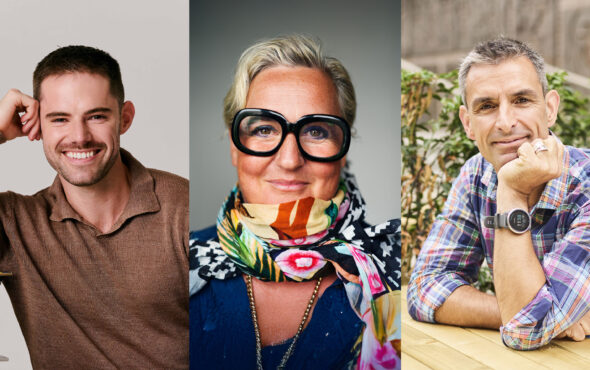
The Lionesses are now back-to-back champions of Europe, this time after a thrilling tournament and a final that felt like it contained the heartbeat of every queer fan watching.
Against the world champions, Spain, this match went the full distance and then some. You could see it in every tackle, every clearance, every goal celebration. Hannah Hampton fighting through a bloody nose, Lucy Bronze taping her own leg mid-game and playing with a fractured tibia, and Chloe Kelly earning her roster spot through sheer mental strength: this was more than just a game.
We witnessed history being made through a celebration of unapologetic joy and unfiltered tenacity. It has been incredible to watch so many countries take huge leaps towards growing the women’s game, particularly Italy and Switzerland. More than ever, especially for the Lionesses, this summer has been about belonging.
I was 13 the first time I watched a women’s football tournament, huddled over a screen watching highlight reels on YouTube. Back then, the women’s game still lived in the margins. It felt like a secret world that I had stumbled upon, designed just for me, where the players looked like who I dreamed of being. Where you could be strong and fast and loud, where you could lead and sweat and celebrate without apology. Football gave me a place to be raw and real, in a life where being “unladylike” was punished more often than praised. On the pitch, playing with friends of any gender, I found freedom. Football didn’t ask me to shrink.
In the years that followed, I came out as queer and non-binary, and somewhere along the way, I lost touch with the game. As an Indian queer person that was growing further and further away from gender binaries, It felt like I no longer fit. I was so tangled up with expectations about who I was allowed to be, and how.
But the Lionesses never stopped playing. And this summer, they won again.
The Lionesses played with grit and grace, coming from behind against Sweden, Italy, and again against Spain. More than the football, it was their spirit that moved me. Jess Carter’s perseverance in the face of hoards of hate and racism thrown her way leading up to the final particularly moved me, as I reconciled with my own cultural identity within the landscape of the sport. She came out and put in a stellar defensive shift that helped the Lionesses win. Expressed perfectly by Keira Walsh when she emphasised the pride the team feels in their resilience, they “just don’t know when to give up”.
It's a good morning to wake up as EUROPEAN CHAMPIONS! 🙌 pic.twitter.com/FPxcyJKkK8
— Lionesses (@Lionesses) July 28, 2025
Women’s football has long stood for more than sport. It has stood for visibility, for authenticity, for change. Openly queer players don’t hide – they lead teams, wear the armband, and kiss their partners after full time, proudly, in celebration of who they are and what they have achieved. In this game, being yourself isn’t political – it’s expected.
This summer’s Euros in Switzerland proved that the women’s game is thriving. There were over 657,000 people in attendance, and more than 45 million were watching globally. A sold-out final. These numbers are proof that this game belongs to all of us. And it’s not going anywhere but up.
As a queer fan, as someone who drifted away and found their way back, I’ve felt something in this victory that goes beyond joy. It feels like homecoming. In the years since the Lionesses first lifted the trophy in 2022, grassroots football in England has exploded. Teams have popped up everywhere – diverse, welcoming, fiercely inclusive.
As Leah Williamson put it, holding back tears while addressing the celebrating crowd at Buckingham Palace: “We do it for young girls. This job never existed 30 years ago. We’re making history with everything we do.”
They’re not just making history. They’re making space for each and every one of us, and that gives me hope for the future of the game for all women. For trans women. For non-binary players. For every kid who’s still watching YouTube clips late at night wondering if there’s a place for them here. There is. Because of the Lionesses. Because of what they’ve built. Because of what they’ve won, not just in medals, but in meaning.
This is more than just a game. It always has been. And now, finally, the world is watching.



